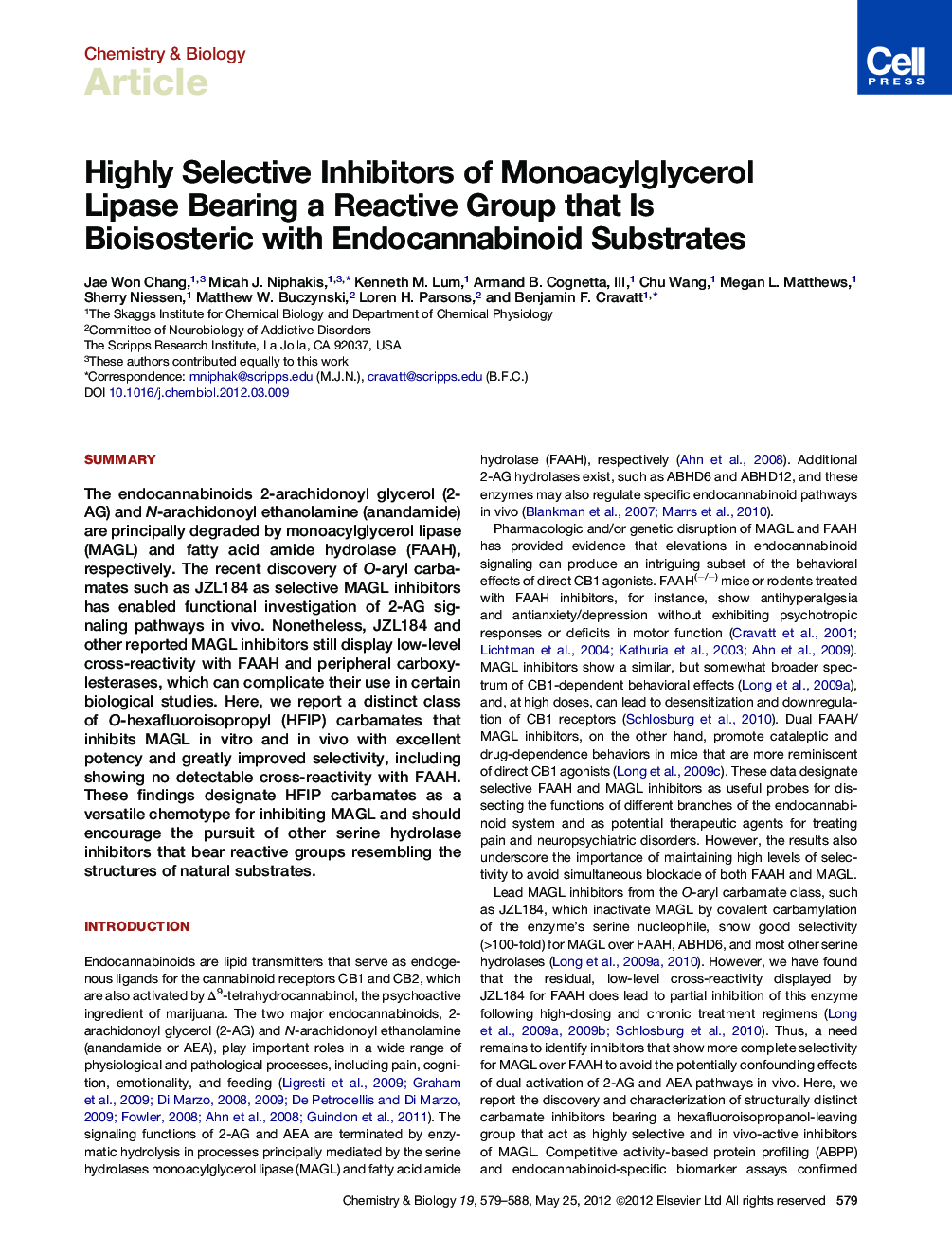| کد مقاله | کد نشریه | سال انتشار | مقاله انگلیسی | نسخه تمام متن |
|---|---|---|---|---|
| 1391308 | 983241 | 2012 | 10 صفحه PDF | دانلود رایگان |

SummaryThe endocannabinoids 2-arachidonoyl glycerol (2-AG) and N-arachidonoyl ethanolamine (anandamide) are principally degraded by monoacylglycerol lipase (MAGL) and fatty acid amide hydrolase (FAAH), respectively. The recent discovery of O-aryl carbamates such as JZL184 as selective MAGL inhibitors has enabled functional investigation of 2-AG signaling pathways in vivo. Nonetheless, JZL184 and other reported MAGL inhibitors still display low-level cross-reactivity with FAAH and peripheral carboxylesterases, which can complicate their use in certain biological studies. Here, we report a distinct class of O-hexafluoroisopropyl (HFIP) carbamates that inhibits MAGL in vitro and in vivo with excellent potency and greatly improved selectivity, including showing no detectable cross-reactivity with FAAH. These findings designate HFIP carbamates as a versatile chemotype for inhibiting MAGL and should encourage the pursuit of other serine hydrolase inhibitors that bear reactive groups resembling the structures of natural substrates.
Graphical AbstractFigure optionsDownload high-quality image (160 K)Download as PowerPoint slideHighlights
► Hexafluoroisopropyl (HFIP) carbamates are potent and selective MAGL inhibitors
► HFIP carbamates appear to inhibit MAGL in part by substrate mimicry
► HFIP carbamates show minimal cross-reactivity with other serine hydrolases
► HFIP carbamates are active against several mammalian isoforms of MAGL
Journal: - Volume 19, Issue 5, 25 May 2012, Pages 579–588